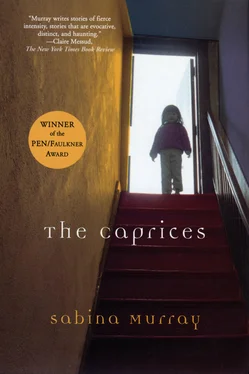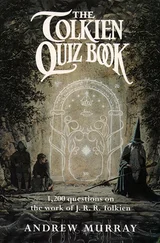Bushido. Bushido. The code of the warrior. Never be taken prisoner. Never shame the emperor. Saito looks with pride at the civilians camped around him, their hands poised at the base of a spear. The children collect rocks and arrange them in pyramids. They too will fight to the death. All warriors. All of them. His chest is fired with pride for these simple people and their love of the emperor. He sees in their faces the willingness to die. His words of inspiration come not from hope, but from his faith that all these people — soldiers, farmers, fishermen, mothers, sons, and daughters — are willing to die without the stain of shame. He says, “Our battle is not over. Soon, we will all have the glorious honor of dying for our emperor. Let this not be a wasted death. For each of you, kill seven of the enemy. Kill seven.”
Why seven? Why this number? Does the mystic count inspire? Saito wonders as he retires to the inner room of his redoubt. He wraps the ceremonial banner around his head and, taking the dagger in both hands, boldly restores his honor even though he knows he has failed the emperor.
In Tokyo, they receive his final message: “We deeply apologize to the emperor that we cannot do better.”
• • •
The man is screaming, but all that McGill can think of is the man’s femur protruding from his leg, the tip of the broken bone sharpened and splintered. This bone looks like a shoot pushing through earth, something you would find on the farm, something the fertile Missouri soil would will into being.
I must help this man, thinks McGill. He wishes he could fix the bone, press it back into the man’s flesh, set him up and tell him to walk back to the beach. Clearly, this soldier lying on the ground and screaming has not had a good morning. He deserves rest and maybe a stiff drink. McGill kneels by his head. The soldier pulls in breath quickly, McGill shouts in his ear, “I’m going to help you,” he says. The man’s eyes are wide and crazy. McGill has never seen so much of the whites of someone’s eyes before. McGill says, “I’m going to end the war.” He relieves the fallen man of his grenades, then scuttles past on his belly. Two men are lying dead in front of him. One is Japanese, his right hand in a death grip around a wooden club. Caveman, thinks McGill. It’s funny. He shelters himself behind these two men. He takes a grenade. He remembers the first time he threw a grenade. His sergeant was holding the collar of his shirt and the seat of his pants. Pull the pin and lob it. Keep your eye on the target. Why was the sergeant holding him like that? Should the sergeant be holding him now? McGill lobs the grenade. There is a satisfying blast. Fireworks. McGill moves forward. Why? Did the grenade accomplish something? He doesn’t know. He hopes he didn’t blow up another marine. Everyone tells him he’s good at what he does. He’s a good marine. People are proud of him. Why? Maybe because he hasn’t had his legs blown up. That would be bad. That would make him a bad marine. He crawls over more bodies. He looks up. There’s a child in the middle of the battlefield. Why? Maybe this child is an angel. Are there Japanese angels? The child’s face is streaked with tears. The child is holding a rock. Why? The child throws the rock at McGill. The rock falls just short of where he is lying. McGill doesn’t know what to do. Does he grab the child and take him back behind the line of fire? That would seem right.
“Come here,” he says, waving the child over. Bombs and grenades are exploding all over the place. There is the whistle of missiles, the stutter of guns. The child cannot hear him. “Come here,” McGill shouts. The child screams in fear. The child is bawling now. He runs away. McGill gets up on his knees, trying to see where he’s gone. There is dust everywhere — a dense cloud. There is smoke. It smells like a barbecue. No child.
And now McGill can hear loudspeakers, Japanese. And something else. More words. Some are Spanish, he knows that. Must be Chamorro. What are they saying? And now English. “There is no shame in surrender. We will not harm you. We will bring you back to Japan. Please do not be afraid.” Who will they bring back to Japan? Who are they talking to? McGill remembers the child. How do they know about the little boy? McGill feels better. They will find the boy and take him back to Japan.
McGill is moving on to Marpi Point. Marpi Point, he figures, is about two hundred meters away. He should be there in an hour and a half, if he progresses at a good clip. The bodies slow him down. Some of the Japanese men are not in uniform. Some are not wearing shoes. Is it casual dress for the defense of Saipan? McGill’s leg has caught on something. He shakes it a couple of times, but does not manage to free it. He looks over his shoulder. Eye to eye with a Japanese. Casual dress. The man is trying to bite his leg. Funny. McGill hauls his knee up and throws a kick right into the man’s teeth. Where is Marpi Point? It can’t be that far off.
He hears an American yelling, “No. Don’t jump. Don’t jump.” The loudspeakers are louder here. McGill pops up and sees the point. He knows that just past his line of vision is a cliff, a sheer drop to the Pacific and the rocks below. Civilians are crowded here together. They are surrendering. Maybe Saipan’s taken. Maybe McGill can go back to his ship. He needs a shower. His clothes are sticking to him as the blood dries. His hair has caked into clumps. Whose blood? He stands on shuddering knees (he’s been crawling a long time) and hustles to a rock, maybe six feet. He leans against it and looks back at the field of bodies he has just traveled. Amazing. No one back home will believe him. A grenade explodes twenty feet to his right and the ground quakes. He inches around to the other side of the rock.
Families. Mothers with children. Fathers. The war is over, thinks McGill. Go home. And they go, not running, but stepping over the edge of the cliff. A mother holds her fat baby and buries her face in the snug skin of the baby’s neck. That’s nice, thinks McGill. Then she jumps. Over the cliff. But they’re all doing that. All jumping. An old man raises his hands in protest. Maybe he knows more, but there’s a Jap soldier there with his bayonet — no more bullets. He urges the old man to jump too. And he does. McGill crawls forward on his stomach to where the land begins to drop. There is a shattered stump of palm. McGill hides behind it. Here he can no longer see the people jumping, but he can see the water. There’s that yelling again, “Don’t jump. Oh God. Please don’t jump.” And the loudspeakers. Japanese. On the rocks there are bodies. Children float face down in the sea. A baby is crying somewhere, but McGill can’t see it. The wailing stops and McGill strains his ears hoping to find that beautiful desperate crying again. On the rock is a woman combing her long black hair. Mermaid. Weird. She slips off the rock into the water. She disappears. More people jump. McGill can’t hear them hit the water because he can’t hear anymore. Something about that baby. He shakes his head. No sound. Just people falling, streaking by, their shadows briefly on the water — a hole — then into the hole the girls and babies fall. And then nothing. The ground is shaking beneath his feet from the pounding mortar. He can feel that shaking. He can feel that.
On July 19, U.S. marines invade Guam and on July 24 invade Tinian. The American capture of the Marianas is completed on August 8, 1944. And what of the Marianas? What now? Tinian is the stage for the end of the war.
The date is August 6, 1945. Colonel Tibbets is the pilot. The plane is the Enola Gay , named after Tibbets’s mother. The bomb is Little Boy, nestled deep in her belly. At 2:45 A.M. the B-29 superfortress roars up the runway. The plane is freed from the earth ascending at a steep rate, climbing higher and higher, flying to that height at which the earth reveals itself to be points, coordinates, gray elevations, and glossy blue depths. From this great height, who can see man? Who can remember what it is to navigate the streets in the early morning, to cook breakfast, to dress one’s children? Who can hear the broom sweeping the front doorstep or the woman in the next room brushing her hair? Who can hear the crack of eggs against the side of the pan, the sputter of oil?
Читать дальше












